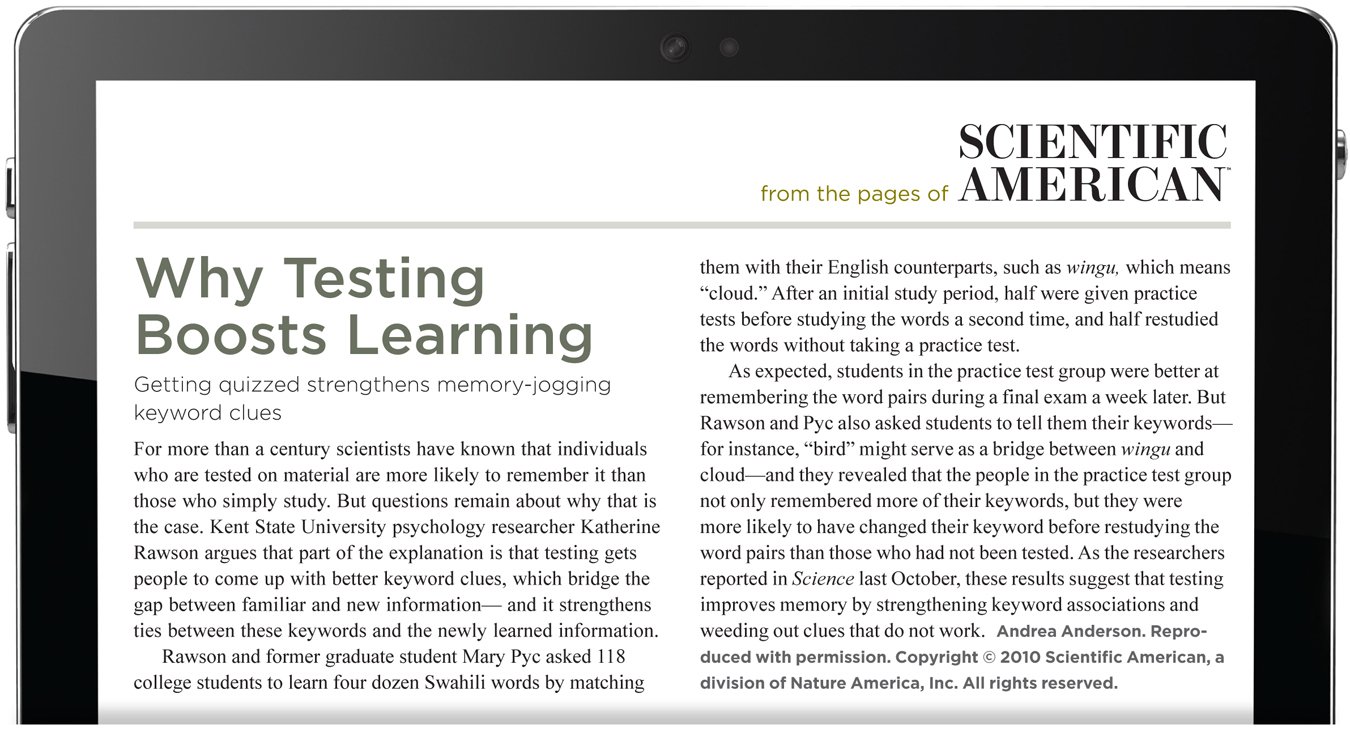Chapter 1. Chapter
Article
From the Pages of Scientific American
Why Testing Boosts Learning

Click the image to enlarge. Click "Next" to continue.
1.1 Quiz
1. Why does Rawson believe that testing is associated with better memory?
| A. |
| B. |
| C. |
| D. |
Correct.
Incorrect.
2. In the Rawson & Pyc study described, what was the dependent variable?
| A. |
| B. |
| C. |
| D. |
Correct.
Incorrect.
3. What did Rawson & Pyc find was a major difference between the practice test group and the group that did not have practice tests?
| A. |
| B. |
| C. |
| D. |
Correct.
Incorrect.
4. Associating a keyword clue with a word you want to remember happens as part of which memory process?
| A. |
| B. |
| C. |
| D. |
Correct.
Incorrect.
5. Another name for the “keyword clue” Rawson & Pyc talk about is a(n):
| A. |
| B. |
| C. |
| D. |
Correct.
Incorrect.